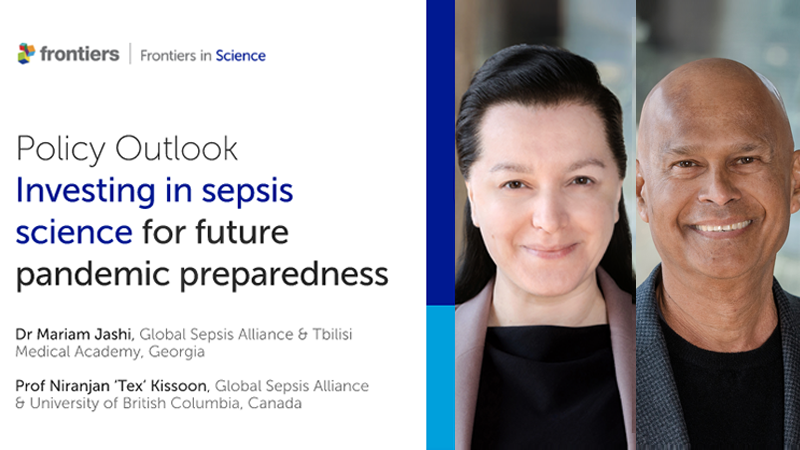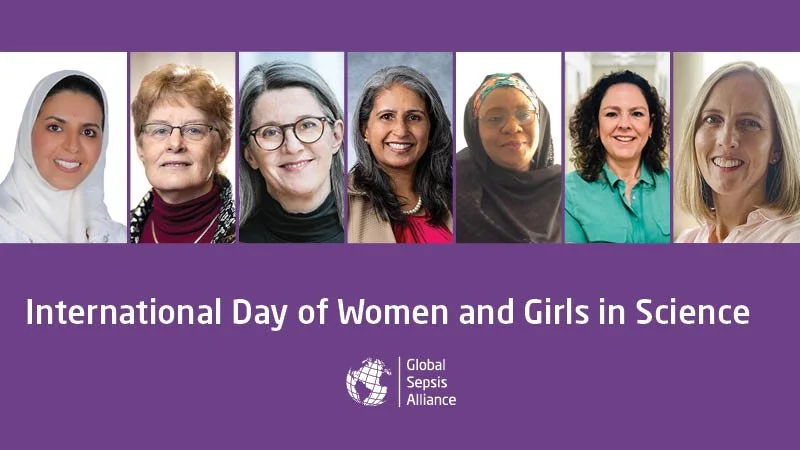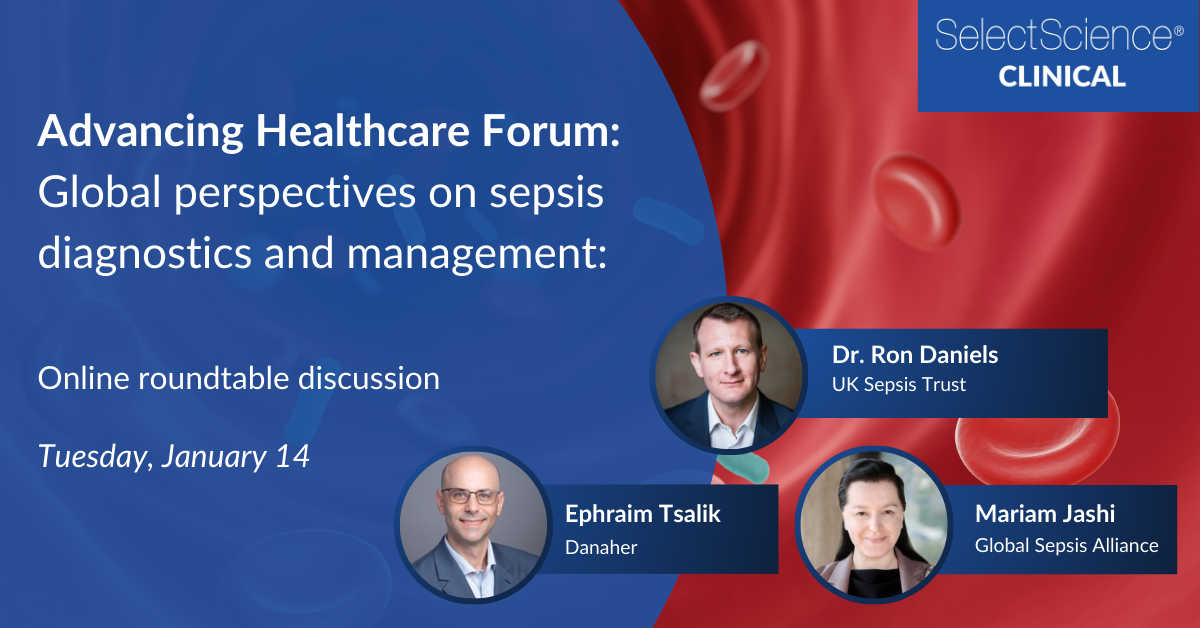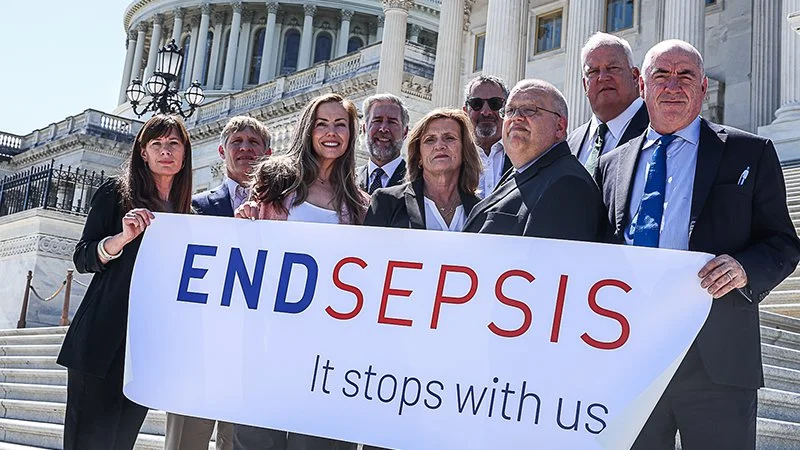Frontiers in Science published a Policy Outlook titled Investing in sepsis science for future pandemic preparedness, authored by Dr. Mariam Jashi and Prof. Niranjan ‘Tex’ Kissoon on behalf of the Global Sepsis Alliance.
In this Policy Outlook, Prof. Kissoon and Dr. Jashi reflect on the lead publication by Prof. Robert E.W. Hancock and his colleagues, Deciphering sepsis: transforming diagnosis and treatment through systems immunology published by the Frontiers on January 30, 2025.
The CEO and the President of the Global Sepsis Alliance reiterate the critical importance and urgency of investing in the Sepsis Science, particularly in systems immunology and precision medicine, to enhance preparedness and response to future disease outbreaks and pandemics, regardless of the primary pathogen.
Given the alarmingly high incidence and mortality rates of sepsis during pandemics, and building on the 2017 World Health Assembly Resolution and the 2030 Global Agenda for Sepsis
Dr. Jashi and Prof. Kissoon urge UN Member States, WHO and stakeholders from the public, private, academic, and civil society sectors to prioritize Sepsis research and development (R&D) at national, regional and global levels.
The authors argue that “to address the complex immune pathophysiology of sepsis, global health authorities should prioritize systems immunology and precision medicine research to enhance early sepsis detection and pathogen-agnostic, individualized treatment. New, effective immune diagnostics and therapeutics could significantly improve survival rates among sepsis patients, regardless of the nature of the pandemic pathogen”.
The GSA leaders underscore the importance of sepsis immunology research for pandemic preparedness, especially in low- and middle-income countries (LMICs) that bear 85% of the global sepsis burden and face significant resource constraints within their healthcare systems. Dr. Jashi and Prof. Kissoon call for financial support and subsidies through the Pandemic Fund or other multilateral mechanisms, to bridge the existing disparities, strengthen sepsis management capacities and avert future pandemic related deaths in LMICs.
To explore the full content of the Policy Outlook, please visit Policy Labs - Policy Outlook

















